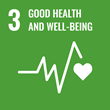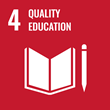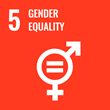Project information
National Institute of Virology and Bacteriology
(NIVB)

- Project Identification
- LX22NPO5103
- Project Period
- 6/2022 - 12/2025
- Investor / Pogramme / Project type
-
Ministry of Education, Youth and Sports of the CR
- national recovery plan
- 5.1 EXCELES
- MU Faculty or unit
-
Central European Institute of Technology
- prof. RNDr. Robert Vácha, PhD.
- Mgr. Gabriel Demo, Ph.D.
- Mgr. Martina Drabinová
- Francesco Luca Falginella, Ph.D.
- Ing. Tibor Füzik, Ph.D.
- Mgr. Mária Gondová
- Ing. et Ing. Miroslav Haman
- Mgr. Adelheid Hanáčková
- Ing. Ondřej Kroutil, Ph.D.
- Timothée Emmanuel Jonathan Rivel, Ph.D.
- Mgr. Jana Salamonová
- prof. RNDr. Robert Vácha, PhD.
- Other MU Faculty/Unit
- Faculty of Medicine
- Other MU Faculty/Unit
-
Faculty of Science
- prof. RNDr. Roman Pantůček, Ph.D.
- Mgr. Tibor Botka, Ph.D.
- Lenka Buňatická
- prof. RNDr. Jiří Doškař, CSc.
- Mgr. Adéla Finstrlová, Ph.D.
- Mgr. Jiřina Havránková
- Mgr. Vojtěch Kovařovic, Ph.D.
- Mgr. Lucie Kuntová, Ph.D.
- Mgr. Ivana Mašlaňová, Ph.D.
- Mgr. Michal Zeman, Ph.D.
- Cooperating Organization
-
Institute of Microbiology of the ASCR, v. v. i.
Institute of Molecular Genetics of the ASCR, v. v. i.
Institute of Organic Chemistry and Biochemistry of the ASCR, v. v. i.
- Responsible person RNDr. PhDr. Zdeněk Hostomský, CSc.
Palacký University, Olomouc
Prague Institute of Chemical Technology
Biological Centre of the ASCR, v. v. i.
Basic and oriented or clinical research on viruses and pathogenic bacteria is essential to understand the processes by which they cause disease, how they escape the immune system and how they can resist treatment. Therefore, research activities at the National Institute of Virology and Bacteriology will focus on characterizing pathogens causing existing and emerging infectious diseases, describing virus and bacteria interactions with the host, understanding the molecular mechanisms of pathogenesis, and developing antiviral and antibacterial agents and vaccines. Individual research groups will work on viruses and bacteria causing diseases with significant health and economic impact, including HIV-1, influenza, tick-borne encephalitis, hepatitis B, SARS-CoV-2, enteroviruses, and the bacteria B. pertussis, S. aureus, and T. pallidum. By working with pathogens that are relevant to current clinical practice, the research groups will have the expertise and equipment for the ongoing study of new pathogens that could become prevalent in the human population in the future.
Sustainable Development Goals
Masaryk University is committed to the UN Sustainable Development Goals, which aim to improve the conditions and quality of life on our planet by 2030.
Publications
Total number of publications: 115
2024
-
Treponema pallidum subsp. pallidum strains DAL-1 and Philadelphia 1 differ in generation times in vitro as well as during experimental rabbit infection
Plos One, year: 2024, volume: 19, edition: 5, DOI
-
Treponematosis in critically endangered Western chimpanzees (Pan troglodytes verus) in Senegal
One Health, year: 2024, volume: 18, edition: June 2024, DOI
2023
-
Antibakteriální lyofilizovaná tableta
Year: 2023
-
Asymmetric reconstructions of immature tick-borne encephalitis virus particles reveal defects caused by the assembly process
Year: 2023, type: Conference abstract
-
BACTERIOPHAGE PHI812 HEAD ASSEMBLY IN THE CELLS OF STAPHYLOCOCCUS AUREUS
Year: 2023, type: Conference abstract
-
Bacteriophages: an alternative or a powerful complement to antibiotics?
Year: 2023, type: Conference abstract
-
Can variants, reinfection, symptoms and test types affect COVID-19 diagnostic performance? A large-scale retrospective study of AG-RDTs during circulation of Delta and Omicron variants, Czechia, December 2021 to February 2022
EUROSURVEILLANCE, year: 2023, volume: 28, edition: 38, DOI
-
Co-infection with two closely related Treponema pallidum subsp. pertenue strains in a yaws patient from Namatanai, Papua New Guinea
Year: 2023, type: Appeared in Conference without Proceedings
-
Comparison of methods for Phage-Antibiotic Synergy (PAS) detection
Year: 2023, type: Conference abstract
-
Complete genome sequences of five Escherichia coli strains with probiotic attributes
Microbiology Resource Announcements, year: 2023, volume: 12, edition: 9, DOI


